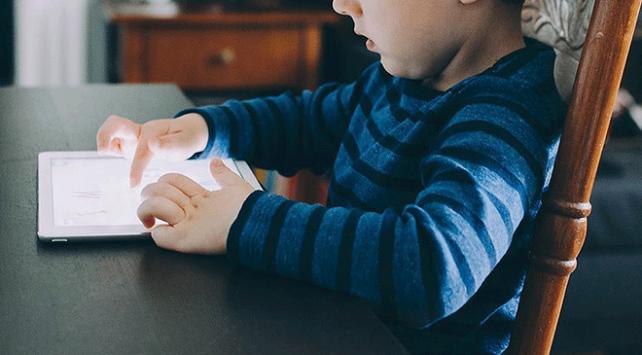Eskişehir Osmangazi University (ESOGÜ) Faculty of Medicine, Department of Child and Adolescent Psychiatry and Diseases, Dr. Lecturer Damla Eyüboğlu said, “Exposure to screens before the age of 2 can cause speech delay, social deficiencies, sleep and attention problems, behavioral problems in children and may prevent the child's healthy psychosocial development. "After the age of 2, it should not exceed 1-2 hours a day," he said.
Eyüboğlu stated that technology provides convenience in many stages of life and has an important area of use.
Eyüboğlu said that in the past, when "screen" was mentioned, only television came to mind, and pointed out that now other types of screens such as "tablets, computers, smartphones and notebooks" have taken their place in homes. Eyüboğlu emphasized that these devices are used for entertainment, education and training purposes as well as communication.
Eyüboğlu stated that the fact that they have many areas of use and that they are now more easily accessible has resulted in the presence of more than one device in every home. Eyüboğlu said that this causes children to be exposed to more screens from an early age and made the following statements:
"Among the questions frequently asked by parents in child psychiatry clinics is 'At what age should we give the child a tablet or a phone?' and “How long should he spend on it?” is located. Of course, the answer to these questions depends on the age of the child. However, as a result of the research, it has been concluded that children should not come into contact with screens before the age of 2.”
“Digital caregiver”
Pointing out that one of the important issues is "When and where the child spends time on the screen", Eyüboğlu made the following evaluations:
“In today's conditions, parenting characteristics have become different from what we see from our own parents. We focus more on our work and spend more energy to improve our living conditions. For this reason, the time we spend with our children at home and the attention we show to them decreases. While we want to come home and rest a little or go out and have a good time somewhere, we want to spare a little more of our energy for ourselves. Our child, who is waiting for attention, looks into our eyes. At this point, smartphones and tablets come to the rescue. Because when the child picks up the screen, he sits quietly without causing any problems. In this case, the definition of 'Digital caregiver' may be appropriate for electronic media.”
Eyüboğlu emphasized that this situation, which seems very innocent at first, can cause a lot of harm to the child as it becomes a routine, because it directs the child's attention and interest from the environment to a tiny screen.
Eyüboğlu explained that the child's interaction with his family, emotional sharing and environmental awareness decrease when he is engrossed in the screen, and said:
“This situation may cause the child to have social relationship problems. Additionally, as screen use time increases, aggressive behavior in children also increases. When using electronic media, it is necessary to carefully consider the content of the child or young person's use. Because control in social media is quite limited. Therefore, the responsibility falls on families. To protect children, they need to check whether the networks they are interested in are reliable. It is quite difficult to control completely. Therefore, before children start using electronic media, their families should definitely inform them about how to use it, what to pay attention to and how to protect themselves.”
Source: AA

















